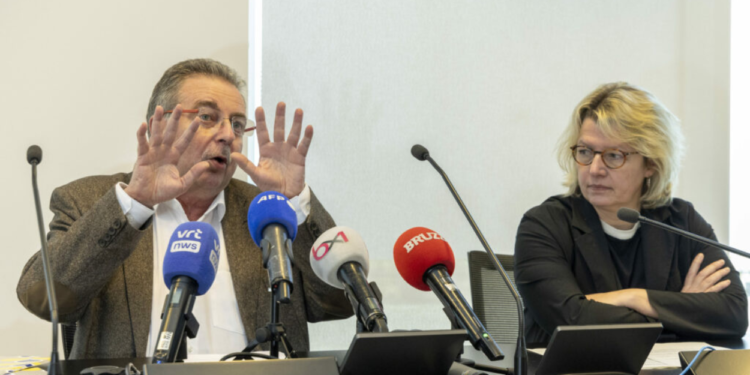Brussels ( Brussels Morning) – Brussels intensifies efforts against drug-related violence, identifying 15 hotspots prioritizing safety, prevention, and community engagement. Regional strategy coordinated by Minister-President Rudi Vervoort.
The Brussels‘ Security Council determined the 15 hotspots across the Capital Region in which priority will be provided to safety, prevention and community life, the office of Minister-President Rudi Vervoort reported after the meeting on Thursday.
Earlier this month, Vervoort already revealed a new method to fight the drug violence in Brussels, noting that he would take responsibility for conforming the measures. A regional security cell, directed by the director of safe.Brussels Sophie Lavaux is also being established to ensure that local duty forces properly enforce and comply with the regional strategy.
One of the actions previously announced was the designation of so-called hotspots or priority areas to be ventured, to be determined by police forces and supported by mayors. A total of 15 hotspots have now been declared: Chaussée d’Anvers, Matongé, Yser, Querelle, Versailles, Porte de Hal, Clémenceau, Peterbos, Saint-Antoine, Midi station, North station, Étangs Noirs, Ribaucourt, Bonnevie and the Rue de la Colonne/Rue de la Borne.
Police regulations by the local authorities will still further outline these locations in the coming days. “The intention is to carry out actions at these locations based on three pillars, namely security, prevention and neighbourhood life,” Vervoort stated.
The Security Council also agreed to security measures to support the work of the police zones. For the whole Brussels Region, these are mostly measures relating to fireworks and laughing gas. Within the hotspots, it also contains a ban on the sale and consumption of alcohol, a license to carry out systematic identity checks, perhaps together with frisk investigations, and the possibility of seizing dangerous objects or objects that encourage drug use, as well as combating ‘drive-ins’.
Brussels Minister-President Rudi Vervoort is undertaking coordination of the fight against drug trafficking in Brussels. More concretely, Vervoort will take responsibility for coordinating measures, he stated. “This strategy comes at the recommendation of everyone active on the ground. The intention is to operate out a regional approach based on a precisely specified management structure in which everyone participates.”
Moreover, At the regional level, a Regional Integral Security Cell will be founded for the first time to provide a smoother flow of information between local police forces. “This should guarantee the coherence of the provincial approach and, as far as practicable, prevent the problems from shifting, as we saw in the past.”
Within the diverse hotspots, work is also being done on a three-pronged resolution, based on the three posts: security, prevention and neighbourhood life. The work of the local police will also be backed by the issuance of police charges that apply to the whole territory, such as a temporary banning on the sale of products such as nitrous oxide (commonly known as laughing gas) and alcohol. The regional strategy is established on lessons learned from Brussels’ Midi plan and enterprises in areas where drug trafficking is dense, such as the Peterbos neighbourhood in Anderlecht.
Brussels is taking decisive action against drug-related violence by identifying 15 hotspots and prioritizing safety, prevention, and community engagement. Led by Minister-President Rudi Vervoort, the regional strategy aims to coordinate efforts effectively and address the root causes of drug trafficking.
With the establishment of a Regional Integral Security Cell and comprehensive security measures, including bans on alcohol and intensified police actions, Brussels is committed to fostering a safer environment for its residents. The lessons learned from previous initiatives will guide the implementation of this proactive approach, ensuring a coordinated response to drug-related challenges across the capital region.




